About Us
Our History
In recent years, organizations have sought to define and develop practical, time-tested guidelines that have real-world applications in industry. Américo Diniz, a professional with nearly 40 years of experience in process risk management and an emeritus Fellow of the CCPS, recognized the need to advance this field within Brazil and expand it to other countries with significant industrial potential, such as most Latin American nations.
RSE was established as a center of excellence to support its clients in operational and business risk management, as well as in the sustainability of their operations and the achievement of global results. This has certainly not been an easy task.
But we work with our clients to do exactly that—and much more.

Américo Diniz
CEO and SHAREHOLDER Fellow and Emeritus Member of CCPS (Center for Chemical Process Safety) – USACompany Profile
RSE Consultancy is committed to ensuring the health and safety of people by supporting the prevention of major accidents and environmental losses. We assist in meeting legal requirements, ensuring the goal of enhancing the performance and value of your company and that of your clients.

What Sets Us Apart
Our approach stands out because we don’t focus solely on technical matters. We also prioritize key pillars such as a commitment to safety, behavior, and cultural, professional, and organizational development.
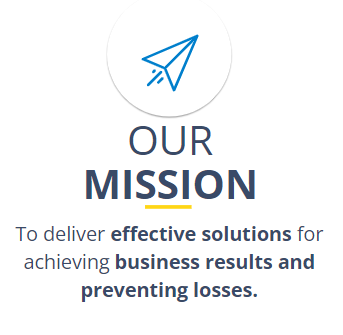
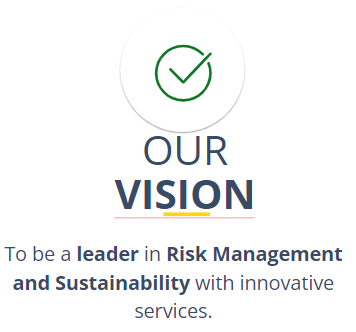
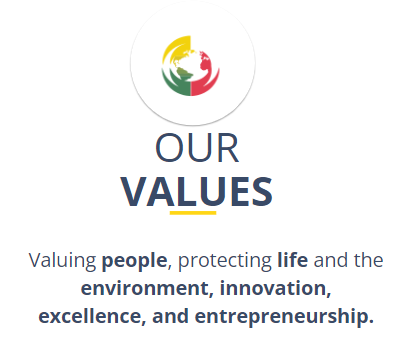
OUR SERVICES
-
Management System
- Management System Diagnosis and Audits ISO 14001 / ISO 145001 / ISO 9001 / Risk-Based Process Safety (RBPS)
- Management System Implementation ISO 14001 / ISO 145001 / ISO 9001 / Risk-Based Process Safety (RBPS)
- Audits
-
Process Risks
Qualitative Methodologies: PHA / HazOp / Bowtie / What-if / FMEA
Semi-quantitative Methodologies: LOPA / SIL
Quantitative Methodologies: Vulnerability and Consequence Analysis / Quantitative Risk Analysis
Facility Siting
Barrier Audits
Pre-Startup Safety Review (PSSR)
SIMOPS (Simultaneous Operations)
-
Enterprise Risks
Diagnosis and Implementation of ISO 31001
Business Continuity Plan
Crisis Plan
Emergency Response Plan (ERP)
-
Management of Change (MoC)
MoC System
Change Management Implementation
Open Courses (Recorded)
SUCCESS STORIES
Courses
-
Process Safety Management Course
This course developed by RSE is based on the Risk-Based Process Safety (RBPS) Guidelines published by the Center for Chemical Process Safety (CCPS). The RBPS approach is structured around four Pillars divided into 20 Elements, covering commitment to process safety, understanding risks and hazards, managing risks, and learning from experience.
CCPS is a technical committee formed by over 80 organizations dedicated to enhancing and disseminating technical information with a focus on preventing major accidents.
The aim of the course is to advance Process Safety Culture and foster continuous improvement across various industry sectors. It is intended for professionals seeking to specialize in the Management and Control of risks and hazards associated with industrial processes, offering a comprehensive view that includes both technological and management aspects, and providing solid, cutting-edge information in the field.
Who is the course for?
The course is designed for individuals who hold a bachelor's degree or other higher education qualifications
How long is the course?
The course consists of 524 hours of content, including online classes with recordings available for later review.
How can I attend the classes?
Classes will be conducted remotely and live (online) through the RSE Virtual Learning Environment.
You can attend the classes from anywhere in the world and at any time, as long as you have a reliable internet connection. If you are unable to join live, the classes will be recorded for later access.
Content Covered in the Classes:
Module I: History, Standards, and Process Safety Culture
Module II: Process Safety Training and Education
Module III: Process Knowledge Management
Module IV: Engineering and Design with a Focus on Process Safety
Module V: Hazard Identification and Risk Analysis
Module VI: Procedures, Safe Practices, and Operational Discipline
Module VII: Integrity and Reliability of Facilities and Equipment
Module VIII: Contractor Management
Module IX: Management of Change (MOC) and Pre-Start-Up Review
Module X: Emergency Management
Module XI: Accident Investigation
Module XII: Indicators and Management in Process Safety
Module XIII: Process Safety Auditing
Module XIV: Governance and Communication Process
Module XV: Research Methodology
Module XVI: Final Course Project
-
Process Safety for Mining Course
About the Course
Workload: 128 hours;
Modality: Pre-recorded classes available for later viewing.
TARGET AUDIENCE
Professionals with a high school diploma, production operators, and technical professionals involved in mining processes.
Course Objective
To develop professionals in the mining sectors who seek to contribute to the implementation and continuous improvement of the process safety management program within an organization, focusing on operational workers aiming to enhance their skills in process safety.
Course Differentials- Instructors with real-world experience.
- Course structured in modules for better content assimilation, using CCPS / ICMM technical guidelines as reference.
- International lectures with CCPS fellows.
- Online pedagogical support throughout the course.
- Virtual learning platform.
- Instructors with real-world experience.
-
Specialization Course in Process Hazard Analysis - PHA
Specialization Course in Process Hazard Analysis - PHA aims to train professionals through a comprehensive approach, presenting technological and management aspects to control the risks and hazards associated with industrial processes. The course seeks to provide solid and practical information, aligned with the most modern developments in the field.
Professionals from the mining, oil and gas, energy, petrochemical, pharmaceutical, chemical, or related industries who wish to specialize in risk-based process safety management, looking to build a strong technical foundation and understand industry trends to identify opportunities for their careers and for the organizations they work for in the implementation and maintenance of a strong safety culture.
Process Hazard Analysis Specialization
Workload: 160 hours;
Modality: Online with live and recorded classes;
Course Modules:
Module I: Introduction to Risk Analysis and Preparation for Hazard Assessment.
Module II: Fundamentals of Chemical Risk Engineering.
Module III: Non-Scenario-Based Hazard Assessment Procedures.
Module IV: Scenario-Based Hazard Assessment Procedures – Part 1 (HAZOP).
Module V: Scenario-Based Hazard Assessment Procedures – Part 2 (HAZOP).
Module VI: Layer of Protection Analysis (LOPA).
Module VII: Risk Analysis Screening Tool.
Module VIII: Selection of Hazard Assessment Techniques.
Module IX: Considerations for the Follow-Up of Analyses.
Module X: Extensions and Special Applications of Risk Analysis.
Module XI: Consequence and Vulnerability Analysis.
Module XII: Quantitative Risk Analysis. -
WHAT-IF
About the "What-If" Course
Duration: 4 hours
Target Audience:
Professionals involved in conducting process risk analysis
Professionals from any industrial sector
Professionals familiar with qualitative risk analysis techniques (PHA, HazOp, Bowtie, FMEA)
Course Objectives:
This course teaches techniques to identify and evaluate potential adverse events, analyze their causes and consequences, and develop strategies to mitigate these risks. Participants will learn to create and explore hypothetical scenarios ("What-If") to understand how different variables and decisions can impact the situation.Identify and understand potential risks in a given context or environment
Develop analytical skills to evaluate hypothetical scenarios and their impacts
Use simulation techniques to predict outcomes and consequences of different events
Implement risk mitigation and management strategies based on the analyses conducted
Course Highlights:
Presentation of real-life cases from the consultancy market
Online pedagogical support throughout the course via chat and email
Virtual library with CCPS books translated into Portuguese
Discussion forum among participating students
Discount voucher for the PSM learning path
Certificate from a company recognized in the process safety market
-
Human Factors
About the "Human Factors" Course
Participating in a Human Factors course in the Oil and Gas Industry is an essential and exciting journey for professionals in this sector. Beyond learning fundamental concepts, it is an opportunity to deeply engage in mutual protection, environmental preservation, and operational efficiency. It is more than just following manuals; it’s about building a safety culture where every person commits to the well-being of everyone, a skill that not only strengthens teams but also promotes personal and professional growth.
Engaging in this course is not just an obligation but a chance to stand out and make a difference. It is an opportunity to develop leadership skills, make confident decisions under pressure, and communicate effectively. It is about investing in yourself and those around you, understanding that, in the end, it is not just about industrial operations but about the lives and dreams of the people involved.Target Audience:
This course is aimed at professionals and students working or intending to work in the oil and gas industry, including but not limited to:Safety engineers, operations managers, field supervisors, safety technicians, industrial safety consultants, engineering students, or related fields interested in operational safety in the oil and gas industry
Duration: 5 modules with 3-hour sessions each
Course Format:
Classes will be live (online) through the RSE Virtual Learning Environment. You can attend the class from anywhere in the world at any time, as long as you have a reliable data connection. If you are unable to connect live, the classes will be recorded for later review.About the "Preliminary Hazard Analysis (PHA)" Course
Course Overview:
The Preliminary Hazard Analysis (PHA) Methodology course is designed for professionals working in environments where hazard identification and assessment are essential for process safety. During the course, participants will learn to apply the PHA methodology to identify potential sources of risk, assess their probability and severity, and propose preventive and corrective measures.
Topics covered include understanding fundamental concepts of hazard and risk, applying hazard identification techniques, classifying and evaluating identified risks, and developing action plans to mitigate risks.
Upon completing the course, participants will be able to apply the PHA methodology in their work environments, contributing to the promotion of safer environments and the prevention of incidents.Target Audience:
For all professionals involved in process risk analysis across industries and organizations of all segments.
Students and other individuals beginning to engage in low-complexity process risk analysis activities.Duration: 4 hours divided into sessions over 4 weeks
Course Format:
The course is designed with recorded materials and made available weekly in the Virtual Learning Environment (VLE) after activities and discussion forums. Just have an internet connection and watch the content online from anywhere in the world.
Topics Covered in Classes:Risk Analysis Methodologies
Introduction to PHA Technique
Analysis Procedure
Elements of the PHA Spreadsheet
Example Application of the Methodology
Practical Activity
-
Pre-Startup Safety Review (PSSR)
About the "Pre-Startup Safety Review (PSSR)" Course
Duration: 4 hours
Target Audience:
Professionals involved in conducting process risk analysis
Professionals from any industrial sector
Course Objectives:
Upon completing the course, participants should be able to conduct PSSRs effectively to ensure operations are started or resumed safely.Course Highlights:
Presentation of real-life cases from the consultancy market
Online pedagogical support throughout the course via chat and email
Virtual library with CCPS books translated into Portuguese
Discussion forum among participating students
Discount voucher for the PSM learning path
Certificate from a company recognized in the process safety market
About the "Risk-Based Process Safety (RBPS)" Course
Duration: 12 hours
Target Audience:
Professionals from any industrial sector
Technical professionals, specialists, and engineers who need to implement management systems to prevent catastrophic accidents
Leaders and professionals who can influence a culture of accident prevention
Course Objectives:
The objective of the RBPS (Risk-Based Process Safety) course is to enable participants to understand and apply risk-based safety principles in industrial processes. This approach aims to integrate risk management throughout all phases of a process's life cycle, from design to operation, to prevent accidents and protect the integrity of facilities.Course Highlights:
Live mentoring sessions with an instructor at a pre-scheduled time
Presentation of real-life cases from the consultancy market
Online pedagogical support throughout the course via chat and email
Virtual library with CCPS books translated into Portuguese
Discussion forum among participating students
Discount voucher for the PSM learning path
-
Preliminary Hazard Analysis (PHA)
About the "Preliminary Hazard Analysis (PHA)" Course
Course Overview:
The Preliminary Hazard Analysis (PHA) Methodology course is designed for professionals working in environments where hazard identification and assessment are essential for process safety. During the course, participants will learn to apply the PHA methodology to identify potential sources of risk, assess their probability and severity, and propose preventive and corrective measures.
Topics covered include understanding fundamental concepts of hazard and risk, applying hazard identification techniques, classifying and evaluating identified risks, and developing action plans to mitigate risks.
Upon completing the course, participants will be able to apply the PHA methodology in their work environments, contributing to the promotion of safer environments and the prevention of incidents.Target Audience:
For all professionals involved in process risk analysis across industries and organizations of all segments.
Students and other individuals beginning to engage in low-complexity process risk analysis activities.Duration: 4 hours divided into sessions over 4 weeks
Course Format:
The course is designed with recorded materials and made available weekly in the Virtual Learning Environment (VLE) after activities and discussion forums. Just have an internet connection and watch the content online from anywhere in the world.
Topics Covered in Classes:Risk Analysis Methodologies
Introduction to PHA Technique
Analysis Procedure
Elements of the PHA Spreadsheet
Example Application of the Methodology
Practical Activity
-
Risk-Based Process Safety (RBPS)
About the "Risk-Based Process Safety (RBPS)" Course
Duration: 12 hours
Target Audience:
Professionals from any industrial sector
Technical professionals, specialists, and engineers who need to implement management systems to prevent catastrophic accidents
Leaders and professionals who can influence a culture of accident prevention
Course Objectives:
The objective of the RBPS (Risk-Based Process Safety) course is to enable participants to understand and apply risk-based safety principles in industrial processes. This approach aims to integrate risk management throughout all phases of a process's life cycle, from design to operation, to prevent accidents and protect the integrity of facilities.Course Highlights:
Live mentoring sessions with an instructor at a pre-scheduled time
Presentation of real-life cases from the consultancy market
Online pedagogical support throughout the course via chat and email
Virtual library with CCPS books translated into Portuguese
Discussion forum among participating students
Discount voucher for the PSM learning path
-
Barrier Audits
About the "Barrier Audits" Course
Duration: 16 hours
Target Audience:
Professionals involved in conducting process risk analysis
Professionals from any industrial sector
Course Objectives:
Identify and understand the barriers in a given system or process that aim to mitigate risks
Assess the effectiveness of safety, control, and prevention barriers within a risk management context
Develop skills to conduct detailed audits examining the integrity and effectiveness of existing barriers
Implement improvements and recommendations based on audit findings to strengthen risk protection barriers
Course Highlights:
Live mentoring sessions with an instructor at a pre-scheduled time
Presentation of real-life cases from the consultancy market
Online pedagogical support throughout the course via chat and email
Virtual library with CCPS books translated into Portuguese
Discussion forum among participating students
Discount voucher for the PSM learning path
Certificate from a company recognized in the process safety market
-
Management of Change (MoC)
About the "Management of Change (MoC)" Course
Duration: 8 hours
Target Audience:
Originator or requester of an MoC
Final approver of an MoC
Professionals conducting process risk analysis
Manager, coordinator, or representative of a management system
MoC reviewer
Course Objectives:
Enable participants to understand and apply specific practices to effectively manage changes in industrial environments, focusing on process safety and accident prevention. During the course, participants will learn to identify, assess, and manage risks associated with changes in industrial processes, including changes in equipment, operational procedures, technologies, and infrastructure. Additionally, the course will cover strategies to ensure changes are implemented safely, minimizing any impacts.Course Highlights:
One live mentoring session with an instructor at a pre-scheduled time
Presentation of real-life cases from the consultancy market
Online pedagogical support throughout the course via chat and email
Virtual library with CCPS books translated into Portuguese
Discussion forum among participating students
Discount voucher for the PSM learning path
Certificate from a company recognized in the process safety market
-
HazOp (Hazard and Operability Study)
Duration: 16 hours
Target Audience:
Professionals involved in conducting process risk analysis
Professionals from any industrial sector
Professionals familiar with qualitative risk analysis techniques (PHA, Bowtie, What-If, FMEA)
Course Objectives:
Understand the fundamentals of the HazOp methodology, including its objectives, principles, and applications in different industrial contexts
Conduct a systematic analysis of processes and systems to identify potential hazard scenarios, operational failures, and risk situations
Use specific tools and techniques to guide HazOp sessions, such as keyword guides, deviation analysis, and other approaches
Interpreting and documenting HazOp analysis results, including generating reports and making recommendations for risk mitigation.
At the end of the course, participants should be able to effectively apply the HazOp methodology in their respective areas of expertise, contributing to proactive identification of operational risks and the implementation of preventive measures.
Course Differentiators
Live mentoring sessions with an instructor at pre-scheduled times.
Presentation of real-life case studies from the consulting industry.
Online pedagogical support throughout the course via chat and email.
Virtual library with CCPS books translated into Portuguese.
Debate forum among participating students.
Discount voucher for PSM learning tracks.
Certification from a company recognized in the process safety market.
-
Accident Investigation
Duration: 16 hours
Target Audience:
Professionals involved in and conducting process risk analysis.
Professionals from any industry sector.
Course Objective: Participants will learn to understand the principles and methodologies of accident and incident investigation, including techniques for evidence collection, root cause analysis, and identification of contributing factors.
Identification of Risk Factors: This course aims to equip participants with the skills to identify risk factors associated with accidents and incidents, allowing for a comprehensive analysis of the circumstances leading to these events.
Root Cause Analysis: Participants will be trained to conduct in-depth analyses to identify the root causes of accidents and incidents, aiming to implement effective corrective actions and prevent recurrence.
Report Writing: Training includes guidance on how to properly document investigation results, preparing accurate reports that highlight lessons learned and recommendations for risk mitigation.
Course Differentiators
Live mentoring sessions with an instructor at pre-scheduled times.
Presentation of real-life case studies from the consulting industry.
Online pedagogical support throughout the course via chat and email.
Virtual library with CCPS books translated into Portuguese.
Debate forum among participating students.
Discount voucher for PSM learning tracks.
Certification from a company recognized in the process safety market.
-
LOPA (Layers of Protection Analysis)
Duration: 16 hours
Target Audience:
Professionals involved in and conducting process risk analysis.
Professionals from any industry sector.
Professionals with knowledge of qualitative risk analysis techniques (HAZOP, Bowtie, What If, FMEA).
Course Objective:
Selection of eligible scenarios for LOPA.
Understanding and applying key concepts such as Initiating Event (IE), Independent Protection Layer (IPL), Probability of Failure on Demand (PFD), and Safety Integrity Level (SIL).
Identification of IPLs.
Quantification of the frequency of occurrence of accidental scenarios.
Identification of the most relevant protection systems for the analyzed process.
Determination of required SIL for safety systems.
Interpretation of results.
Course Differentiators
Live mentoring sessions with an instructor at pre-scheduled times.
Presentation of real-life case studies from the consulting industry.
Online pedagogical support throughout the course via chat and email.
Virtual library with CCPS books translated into Portuguese.
Debate forum among participating students.
Discount voucher for PSM learning tracks.
Certification from a company recognized in the process safety market.
-
Bowtie
Duration: 12 hours
Target Audience:
Professionals involved in and conducting process risk analysis.
Professionals from any industry sector.
Professionals with knowledge of qualitative risk analysis techniques (HAZOP, LOPA, What If, FMEA).
Course Objective: Equip professionals to use the Bowtie methodology to identify, analyze, and manage risks in a visual and effective manner. This includes understanding how to create and utilize Bowtie diagrams to map risk scenarios, potential causes, consequences, and control barriers, aiming for risk prevention and mitigation.
Course Differentiators
Live mentoring sessions with an instructor at pre-scheduled times.
Presentation of real-life case studies from the consulting industry.
Online pedagogical support throughout the course via chat and email.
Virtual library with CCPS books translated into Portuguese.
Debate forum among participating students.
Discount voucher for PSM learning tracks.
Certification from a company recognized in the process safety market.
-
Contractor Management
Duration: 12 hours
Target Audience:
Professionals involved in and conducting process risk analysis.
Professionals from any industry sector.
Course Objective: To train professionals to identify, assess, and manage risks involved in contracting processes. This includes understanding best practices for mitigating these risks, ensuring efficient and safe contracting practices. Participants will also learn techniques and tools to identify risks, assess their probability and impact, and develop strategies to mitigate them. The course also covers drafting contracts that consider these risks and how to monitor and control them throughout the contract lifecycle.
Course Differentiators
Live mentoring sessions with an instructor at pre-scheduled times.
Presentation of real-life case studies from the consulting industry.
Online pedagogical support throughout the course via chat and email.
Virtual library with CCPS books translated into Portuguese.
Debate forum among participating students.
Discount voucher for PSM learning tracks.
Certification from a company recognized in the process safety market.
Certificates RSE

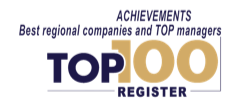

Partners RSE



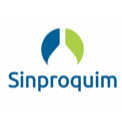




Contact US
Our buisness team will be in contact












